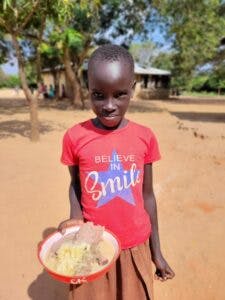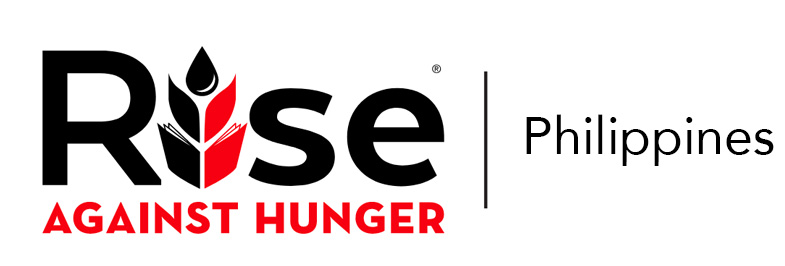Nutrition Security is Vital for Food Security — Here’s How Rise Against Hunger Addresses Both
Editor’s Note: At Rise Against Hunger, we support communities by addressing food and nutrition security. Wondering what the difference is? In recognition of March being National Nutrition Month, Chelsie Azevedo, Rise Against Hunger’s Nutrition Technical Advisor, explains the necessity for food and nutrition security to be linked and how Rise Against Hunger addresses both through our programs.

Food security does not exist without nutrition security. Unfortunately, many organizations and policies focused on quantity rather than quality of food over the past half-century. It’s the difference between eating bread every day or a diverse diet incorporating all the food groups every day. One satisfies your hunger while the other enriches your body to reach its full potential. The Food and Agriculture Organization’s “State of Food Security and Nutrition 2020” report pointed out that the industry standard of counting calories as a metric for food security was not leading to improved nutrition outcomes. Malnutrition still persists with nutrition-related non-communicable diseases on the rise globally. The world is not on track to reach any of the targets set out by the United Nations Sustainable Development Goal 2 of zero hunger by 2030. In 2020, almost 12% of the global population was severely food insecure and 22% of children under 5 were affected by stunting. To correct the misdirected focus on only delivering calories, there is a global push to focus on nutrition security through dietary diversity and utilizing locally available foods.

Rise Against Hunger is a champion for this new direction. For example, our local and regional food procurement efforts, which we launched in 2020 and have continued implementing with in-country partners, and our nutrition-smart agriculture Empowering Communities projects both focus on the nutritional quality of food. The Leveraging Agriculture to Unite Communities and Hospitals (LAUNCH) project in Senegal, one of our Empowering Communities initiatives implemented through our partner Development in Gardening, has reported an average of 30 varieties of native and imported vegetables and fruit trees in participants’ gardens. LAUNCH, pictured above, focuses heavily on diversifying nutritious options through community gardens and prescription gardens for families with malnourished children. These gardens offer families a reliable source of nutrient-rich foods to ensure an improved nutritional status for years to come.

To highlight the difference between quantity and quality in food, consider the health status of children at Hope For South Sudan, a residential school sponsored by our partner Lift Up the Vulnerable that protects at-risk children from trafficking. When the school menu initially consisted of two food groups per meal and frequently lacked fruits and vegetables, monthly sick reports were high, malnutrition persisted and non-healing wounds were common. Through the Empowering Leaders through Nutrition Smart Agriculture project, Rise Against Hunger and Lift Up the Vulnerable are working to increase agricultural production and dietary diversity for Hope for South Sudan’s students and the surrounding community. The school menu has now been able to provide more food groups, including meat, eggs, legumes, and fruits and vegetables. Rise Against Hunger provided agriculture and nutrition training, such as the importance of planting diverse crops throughout the year to guarantee children’s nutritional needs would be met. There was also training on meal preparation and diversifying options at each meal. Simple measures, like adding groundnut paste to the morning porridge or fruit to the lunch menu, ensured that adequate nutrients could be consumed. They were able to diversify their menu and, as pictured above, provide children with three to four food groups, including fruits and vegetables, per meal.
Monthly sick reports at Hope for South Sudan have dropped to record lows. Teachers are noticing improved attention and performance. For the first time since data collection began, there are zero cases of severe acute malnutrition. It was not the lack of food limiting children’s cognitive and physical abilities, it was the lack of nutritious food.
Rise Against Hunger recognizes that hunger and malnutrition are complex issues that require holistic and integrated solutions. We work with our local partners, like Development in Gardening and Lift Up the Vulnerable, to increase the nutritious use of local and traditional foods, enhancing nutritional status and respecting the cultural importance of food in the communities we serve.
In honor of National Nutrition Month, we encourage you to take action to support food and nutrition security around the world! There are several ways you can do this! Contribute to organizations like Rise Against Hunger who work directly with communities to alleviate these issues. And as conflict and climate change continue to fuel food insecurity, consider supporting government policies focusing on peace and coordination among international actors and eating plant-based meals that help reduce diet-related greenhouse gas emissions a few more times a week. Growing the Movement to end hunger is made possible through your actions!

